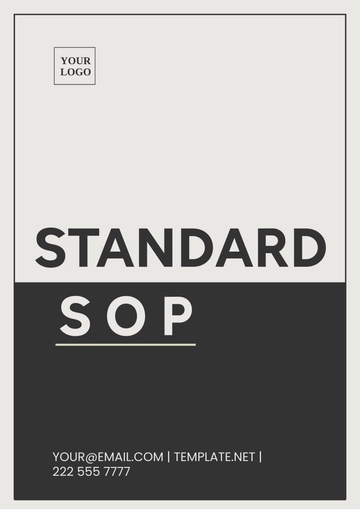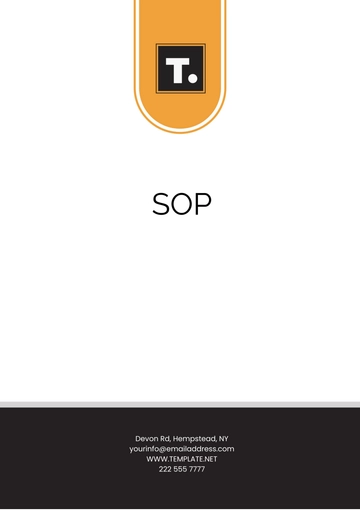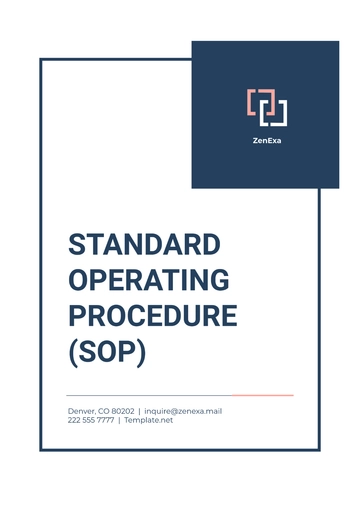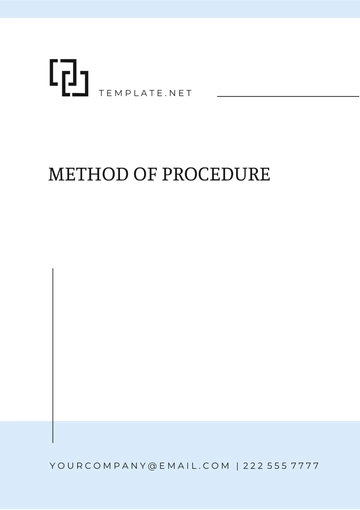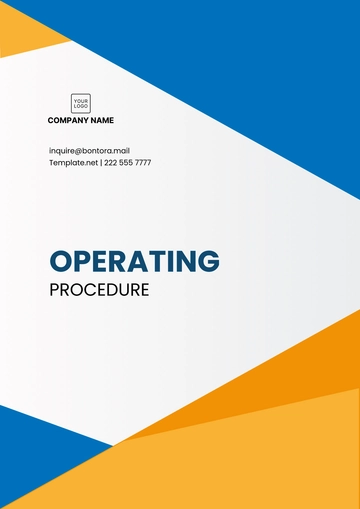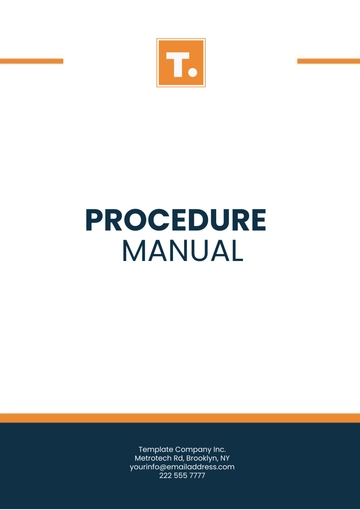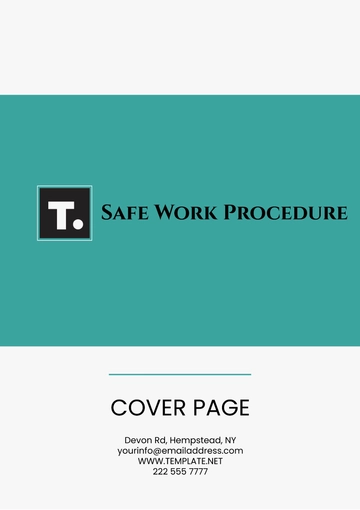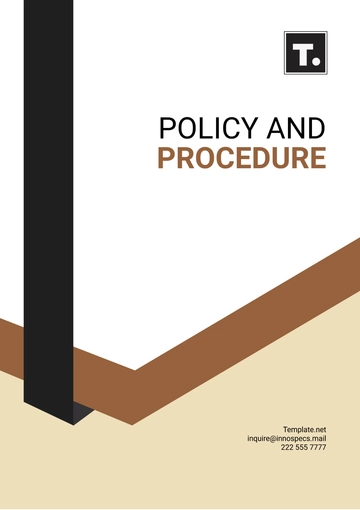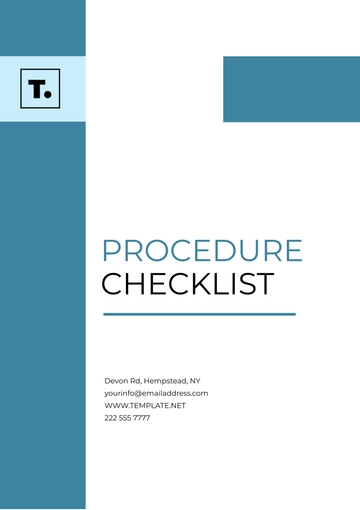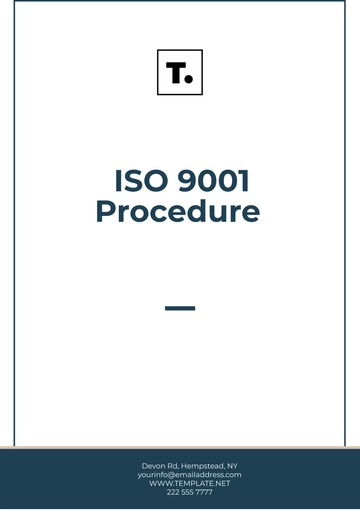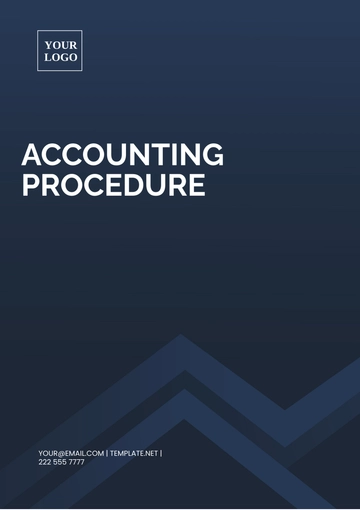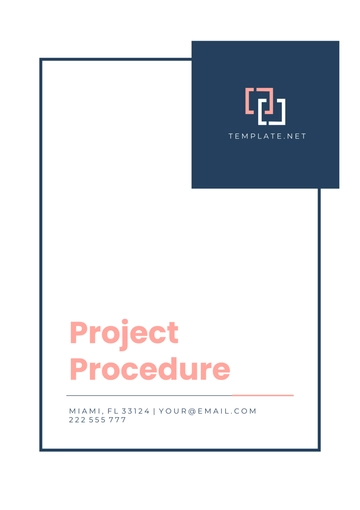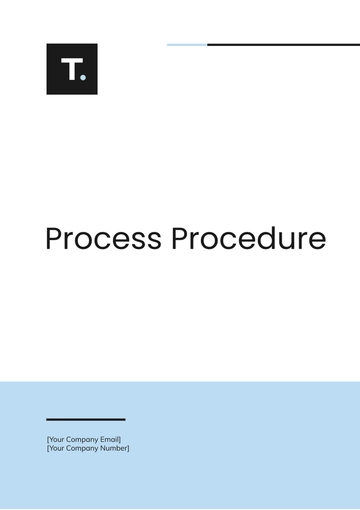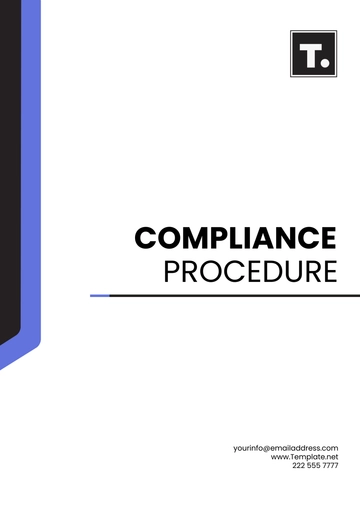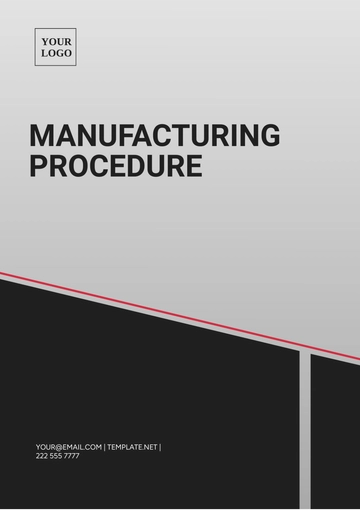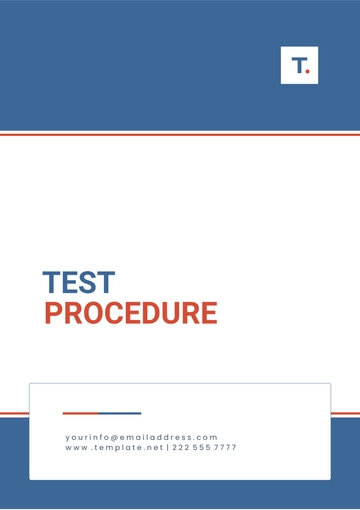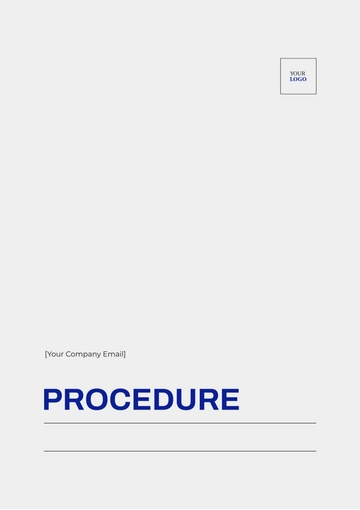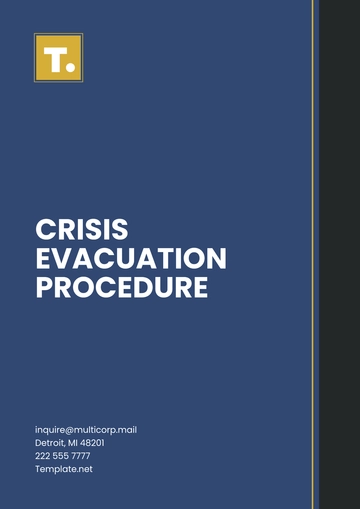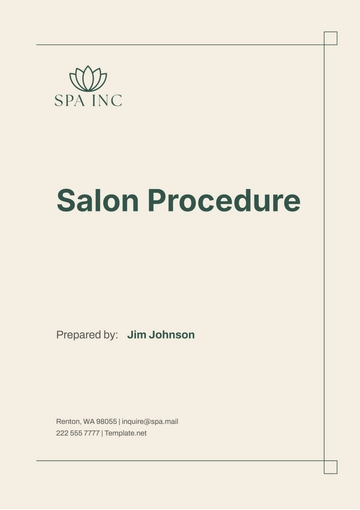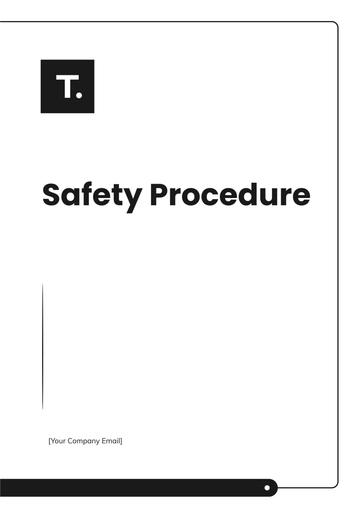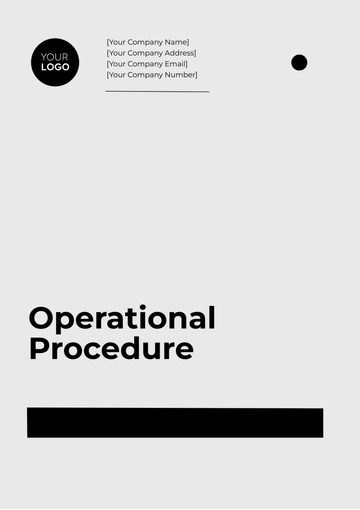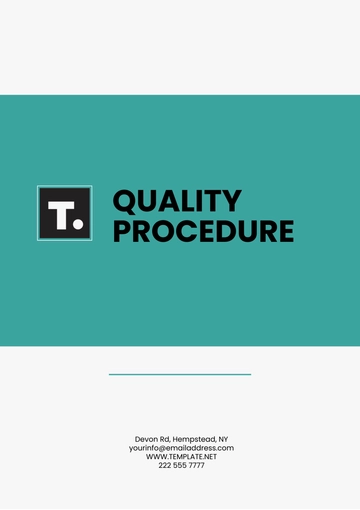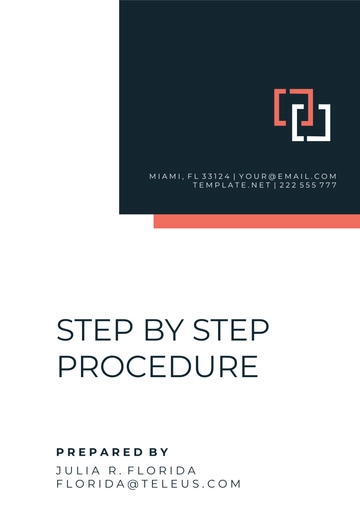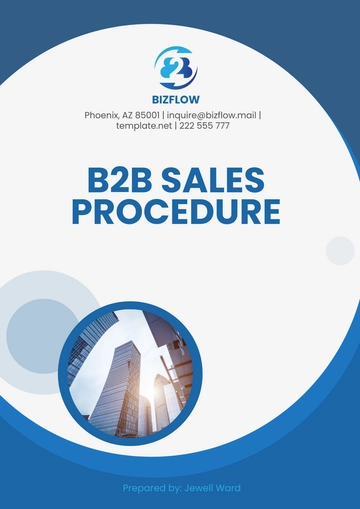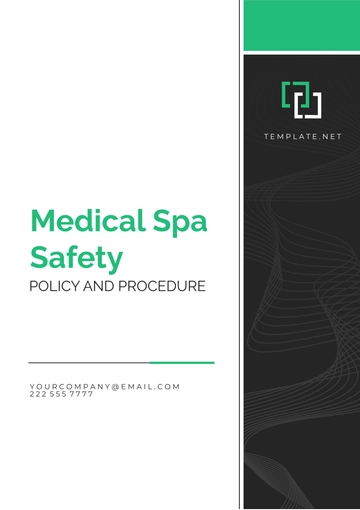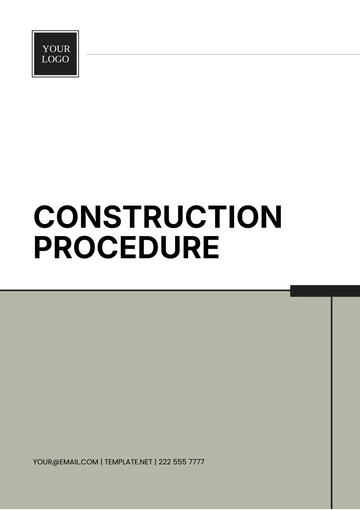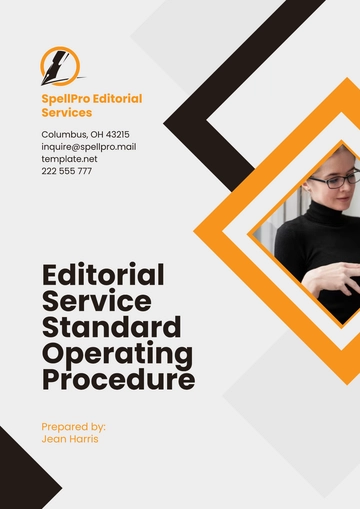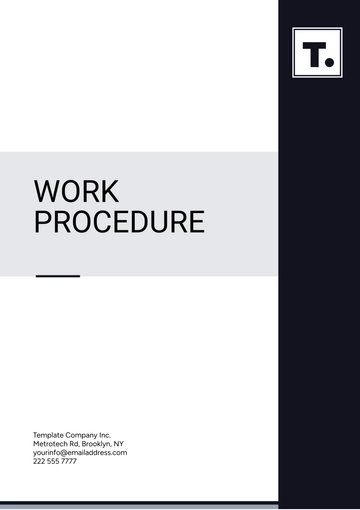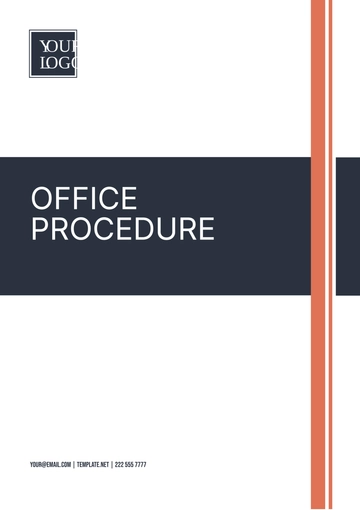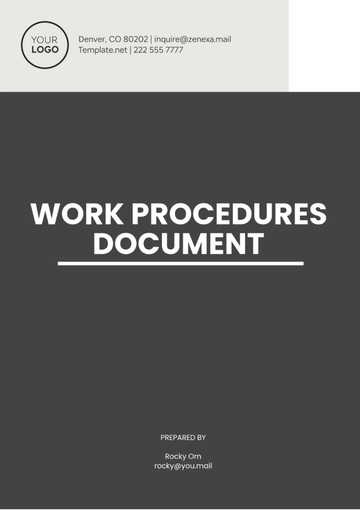Free Nursing Home Process Procedure
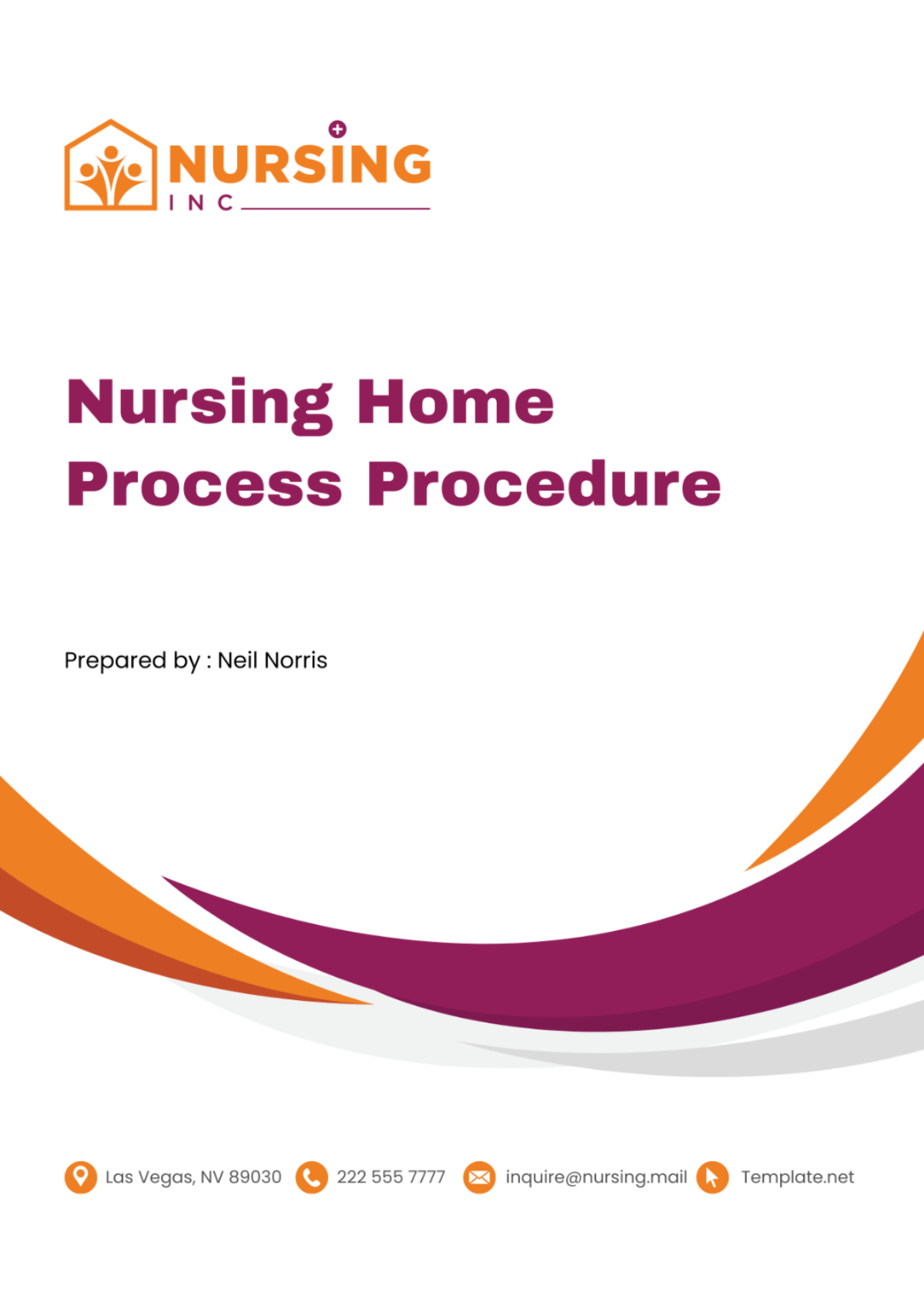
I. Introduction
Welcome to our Nursing Home Process Procedure, a pivotal resource designed to elevate the operational effectiveness and compliance standards of [Your Company Name]. At the heart of our approach is a steadfast commitment to excellence in patient care, safety, and adherence to the highest industry benchmarks. This comprehensive guide serves not just as a directive but as a transformative framework, empowering our staff to deliver unparalleled care.
Through meticulously developed protocols and guidelines, we aim to forge an environment that not only meets but exceeds the expectations of our residents and their families. By embracing these procedures, we pledge to uphold the dignity, well-being, and satisfaction of those under our care, ensuring [Your Company Name] remains at the forefront of nursing home services.
Patient Admission and Assessment
The patient admission and assessment process is the cornerstone of our care delivery system. Upon arrival, every resident receives a thorough evaluation, encompassing medical history, current health status, and personal care needs. This initial step, spearheaded by our skilled nursing team, ensures the creation of a tailored care plan that aligns with each resident's specific requirements. Our commitment to a holistic approach extends beyond physical health, embracing the psychological and social aspects of resident care, thus laying a solid foundation for their journey with us.
Daily Care and Management
Daily care and management are pivotal to our mission, focusing on personalized attention and respect for each resident's routine and preferences. Our staff is trained to implement care plans that prioritize comfort, mobility, and engagement, ensuring a high quality of life within our facilities. Regular health assessments, medication management, and coordination with healthcare providers are integral components of our daily operations, aimed at maintaining optimal health and detecting potential issues early.
Compliance and Quality Assurance
In a landscape where regulations and standards are ever-evolving, our nursing home prides itself on rigorous compliance and quality assurance measures. Regular audits, staff training sessions, and feedback mechanisms are in place to monitor and enhance our service quality continually. This proactive stance not only ensures adherence to legal requirements but also fosters an environment of continuous improvement, reflecting our dedication to excellence and innovation in care.
II. Scope of the Procedure
This procedural guide meticulously outlines seven key areas essential to maintaining the highest standards of care and operational excellence within [Your Company Name]. It encompasses patient admission and discharge, medication management, patient assessment, individualized care planning, infection control, emergency preparedness, and compliance with healthcare regulations. By adhering to these detailed protocols, our team ensures a seamless, safe, and dignified experience for every resident, while upholding our commitment to regulatory compliance and best practices in healthcare.
1. Patient Admission and Discharge
Our Patient Admission and Discharge procedure ensures a seamless transition for residents entering and leaving our care. It involves meticulous pre-assessment, personalized care planning, and thoughtful discharge planning, emphasizing the importance of a comprehensive approach to support the resident's journey at [Your Company Name].
Step | Procedure | Responsible Party | Details |
|---|---|---|---|
1. | Initial Inquiry & Pre-assessment | Admissions Coordinator | Gather preliminary information on the prospective resident, assess fit and needs via phone or in-person interview. |
2. | Complete Admission Paperwork | [Your Name]/Designated Staff | Fill out all necessary admission forms, including consent, medical history, and personal details, ensuring legal and procedural compliance. |
3. | Health and Needs Assessment | Registered Nurse (RN) | Conduct a comprehensive evaluation of the resident's health status, medical needs, and personal preferences. |
4. | Development of Care Plan | Care Team | Create a personalized care plan based on the assessment, involving the resident and family members. |
5. | Orientation to Facility | Staff Member | Introduce the resident to the facility layout, services, staff, and residents to ease their transition. |
6. | Ongoing Assessment & Adjustment | RN/Care Team | Regularly review and adjust the care plan as the resident's needs evolve over time. |
7. | Discharge Planning & Execution | Discharge Planner | Prepare for and manage the resident's discharge, including coordination with external services and post-discharge care. |
2. Medication Management
The Medication Management protocol at [Your Company Name] is designed to ensure the safe and effective use of medications. Through rigorous prescription verification, secure storage, and diligent administration, we prioritize resident safety, monitor for side effects, and maintain detailed documentation to uphold the highest standards of care.
Step | Procedure | Responsible Party | Details |
|---|---|---|---|
1. | Prescription Receipt & Verification | Pharmacist | Confirm accuracy and legitimacy of prescriptions received, checking for potential drug interactions. |
2. | Medication Storage | Pharmacist/Trained Staff | Securely store medications, ensuring proper conditions (temperature, humidity) are maintained. |
3. | Medication Administration | Licensed Nurse | Administer medications as prescribed, observing for immediate adverse reactions. |
4. | Monitoring for Side Effects | RN/Licensed Practical Nurse (LPN) | Regularly assess residents for side effects or adverse reactions, adjusting care plans as necessary. |
5. | Documentation & Review | RN/Pharmacist | Maintain meticulous records of medication orders, administration, and any reactions, reviewing periodically for efficacy and safety. |
3. Patient Assessment
Our Patient Assessment process is a cornerstone of individualized care, providing a thorough evaluation of each resident's health and well-being. This continuous assessment allows for the dynamic adjustment of care plans, ensuring that every resident receives the attention and support they need to thrive in our care.
Step | Procedure | Responsible Party | Details |
|---|---|---|---|
1. | Initial Comprehensive Assessment | RN | Evaluate the resident's physical, mental, and social health upon admission and periodically thereafter. |
2. | Development of Initial Care Plan | Care Team | Formulate a care plan based on the initial assessment, outlining specific goals and interventions. |
3. | Regular Scheduled Reassessments | RN | Conduct scheduled assessments to monitor progress and adapt the care plan as needed. |
4. | Unscheduled Assessments as Needed | RN | Perform additional assessments in response to any significant changes in the resident's condition. |
5. | Documentation of Changes | RN | Document all findings and adjustments in the resident's medical record, ensuring transparency and continuity of care. |
4. Individualized Care Planning
Individualized Care Planning at [Your Company Name] focuses on creating personalized care paths that respect the unique needs and preferences of each resident. By involving residents and their families in the care planning process, we ensure that our care is not only effective but also compassionate and person-centered.
Component | Details | Responsible Party | Procedure |
|---|---|---|---|
Initial Plan | Base the plan on comprehensive assessment findings, considering resident's preferences and health goals. | RN/Care Team | Draft a detailed care plan specifying interventions, responsible parties, and evaluation metrics. |
Implementation | Carry out the interventions outlined in the care plan, adapting as necessary to the resident's day-to-day needs. | Entire Care Team | Ensure consistent and coordinated effort from all staff involved in the resident's care. |
Review & Adjustment | Regularly review the effectiveness of the care plan, making adjustments in response to changing needs or goals. | RN/Care Team | Utilize assessment data to refine and optimize care strategies, involving the resident and family in decision-making. |
5. Infection Control
Infection Control is critical to maintaining a safe and healthy environment for our residents and staff. Our comprehensive approach includes stringent hygiene practices, regular surveillance, and prompt response measures, emphasizing prevention and containment to safeguard our community against infectious diseases.
Activity | Procedure | Responsible Party | Details |
|---|---|---|---|
Prevention | Implement standard precautions and promote hand hygiene among staff, residents, and visitors. | All Staff | Ensure strict adherence to hygiene practices, including the use of PPE and regular sanitation of high-touch areas. |
Surveillance | Monitor infection rates, investigating any outbreaks or increases in communicable diseases. | Infection Control Officer | Analyze data to identify trends, sources of infection, and effectiveness of control measures. |
Response | Activate outbreak protocols, including isolation measures and increased infection control practices. | Infection Control Team | Respond swiftly to contain outbreaks, communicating with health authorities and the community as appropriate. |
6. Emergency Preparedness
Emergency Preparedness at [Your Company Name] involves meticulous planning, staff training, and regular drills to ensure our readiness for any situation. This proactive approach is designed to protect our residents and staff, ensuring a swift and coordinated response to emergencies, minimizing risks, and maximizing safety.
Component | Procedure | Responsible Party | Details |
|---|---|---|---|
Planning | Develop and maintain a comprehensive emergency plan, covering a range of scenarios. | Safety Officer | Identify potential emergencies and outline specific response strategies, including evacuation routes and assembly points. |
Training | Conduct regular training sessions for staff on emergency procedures and roles. | Safety Officer/Trainers | Ensure all staff are familiar with the emergency plan and confident in their ability to execute it. |
Drills | Perform regular emergency drills to test the effectiveness of the plan and staff readiness. | Safety Officer/Trainers | Simulate emergency scenarios, evaluating and improving the response based on performance. |
Evaluation | Review the outcomes of drills and real incidents, making necessary adjustments to the plan. | Safety Committee | Utilize feedback to strengthen emergency preparedness and response capabilities. |
7. Compliance with Healthcare Regulations
Compliance with Healthcare Regulations is fundamental to our operation, reflecting our commitment to excellence and integrity. By conducting regular audits, updating policies, and providing ongoing staff training, we ensure that our practices not only meet but exceed regulatory standards, fostering a culture of compliance and continuous improvement.
Activity | Procedure | Responsible Party | Details |
|---|---|---|---|
Regular Audits | Perform internal and external audits to ensure compliance with healthcare laws and regulations. | Compliance Officer | Identify compliance gaps and implement corrective actions to mitigate risks. |
Staff Training | Provide ongoing education on regulatory changes and compliance requirements. | Compliance Officer | Keep staff informed and competent in meeting the latest standards and best practices. |
Policy Updates | Regularly review and update policies and procedures to align with current regulations. | Compliance Team | Ensure operational practices reflect the most up-to-date legal and ethical standards. |
Documentation | Maintain comprehensive and accurate records of care, training, and compliance efforts. | All Staff | Facilitate transparency, accountability, and readiness for external reviews or audits. |
Each of these sections has been carefully crafted to align with the rigorous standards expected of modern healthcare facilities, ensuring [Your Company Name] not only meets but exceeds the expectations set forth by healthcare regulators and our cherished residents.
III. Additional Reminders and Tips
In the pursuit of excellence at [Your Company Name], it is imperative to not only adhere to established protocols but also to foster a proactive culture of growth and communication. Our Nursing Home Process Procedure stands as a living document, one that evolves alongside the cutting-edge developments in healthcare, embodying our dedication to delivering premier care and ensuring the well-being of our residents.
Continual Procedure Review and Adaptation
Embrace the ethos of perpetual progress by systematically revisiting our procedures. This commitment to refinement reflects our dedication to incorporating the latest research, technological advancements, and regulatory guidelines, ensuring that [Your Company Name] remains synonymous with excellence in care.
Fostering Open and Transparent Communication
Cultivate a foundation of trust and understanding by encouraging clear, open lines of communication among our staff, residents, and their families. This openness not only enhances the care experience but also ensures that every voice is heard and valued, creating a community where everyone feels supported and informed.
Prioritizing Safety and Quality in Every Aspect
At the heart of [Your Company Name]'s mission is a relentless focus on safety and the highest quality of care. This principle guides our actions, from the meticulous administration of treatments to the thorough training of our staff. By setting rigorous standards for safety and quality, we provide a sanctuary of care that residents and their families can rely on.
Promoting a Culture of Continuous Improvement
Champion a culture where continuous improvement is not just encouraged but celebrated. By actively seeking opportunities for enhancement and encouraging staff at all levels to contribute ideas, we foster an environment where excellence is the norm. This culture of innovation and striving for better outcomes positions [Your Company Name] at the forefront of the nursing home industry, setting new benchmarks for care and service.
IV. Staff Training and Development
Ensuring our team remains at the forefront of the nursing home sector, [Your Company Name] invests in comprehensive staff training and development programs. These initiatives are designed to enhance the skills, knowledge, and empathy of our staff, directly translating to improved patient care and operational efficiency.
Comprehensive Orientation Program
New hires undergo a robust orientation program, covering not only their specific roles but also the broader mission and values of [Your Company Name]. This foundational training ensures all team members are aligned with our commitment to excellence in patient care and safety.
Ongoing Professional Development
We provide continuous learning opportunities for our staff, including workshops, seminars, and certification courses in the latest healthcare practices and technologies. This commitment to ongoing education fosters a culture of excellence and innovation within our team.
Specialized Training Sessions
Tailored training sessions address the unique needs of our residents, such as dementia care, mobility support, and end-of-life care. These specialized programs ensure our staff can offer compassionate and effective care across a wide range of needs.
Performance Evaluation and Feedback
Regular performance reviews, coupled with constructive feedback, allow our team members to grow and excel in their roles. This process not only aids in personal and professional development but also ensures our residents receive the best possible care.
V. Resident Engagement and Well-being
At [Your Company Name], we believe in the holistic well-being of our residents, encompassing physical, emotional, and social health. Our programs and activities are designed to engage residents in meaningful ways, promoting a high quality of life within our community.
Personalized Activity Programs
Understanding that each resident has unique interests and capabilities, we offer personalized activity programs. These range from physical exercises to creative arts, cognitive games, and social events, ensuring all residents have the opportunity to engage in activities that bring them joy and fulfillment.
Family Involvement and Support
We actively encourage and facilitate family involvement in the care and activities of our residents. Through regular updates, family meetings, and special events, we foster a sense of community and support that extends beyond our walls.
Mental and Emotional Support Services
Recognizing the importance of mental and emotional well-being, [Your Company Name] provides access to counseling services, support groups, and spiritual care options. These services offer residents and their families the support they need to navigate the challenges and changes that come with aging.
Environment of Respect and Dignity
Creating an environment where every resident is treated with respect and dignity is paramount. Our staff are trained to uphold these values in every interaction, ensuring that our residents feel valued, heard, and cared for at all times.
This Nursing Home Process Procedure document outlines [Your Company Name]'s unwavering commitment to excellence in care, safety, and resident well-being. Through diligent adherence to these comprehensive guidelines, continuous staff development, and a deep focus on resident engagement, we set a benchmark for quality and compassion in the nursing home sector, fostering a community where every individual is valued and respected.
- 100% Customizable, free editor
- Access 1 Million+ Templates, photo’s & graphics
- Download or share as a template
- Click and replace photos, graphics, text, backgrounds
- Resize, crop, AI write & more
- Access advanced editor
The Nursing Home Process Procedure Template from Template.net is a comprehensive, editable document designed to streamline nursing home operations. Our customizable template is seamlessly editable in our AI Editor Tool, enabling you to tailor content precisely to your establishment's needs. Save time, increase efficiency, and improve the quality of care with this innovative tool - a game-changer in healthcare management. Try it today and experience the difference.
